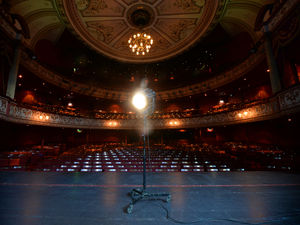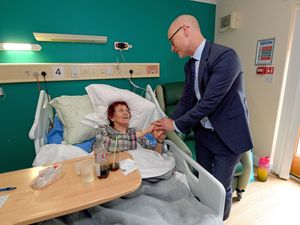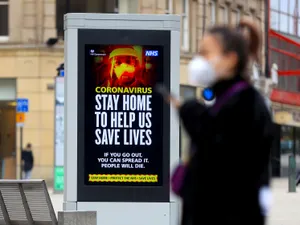'I just got on with it' – Inspirational story of one of the first black officers at West Midlands Police
As one of only a handful of black police officers in the West Midlands 50 years ago, a time when racism riddled society, Kirk Dawes suffered while wearing blue serge.
Watch more of our videos on ShotsTV.com
and on Freeview 262 or Freely 565
Either institutionalised or incendiary, it was near ever present.
Within the force, Kirk encountered intolerance and ignorance.
Within his community there were those who considered his decision to join West Midlands Police an act of treachery. He had entered into a pact with the enemy.
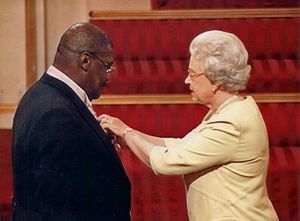
“In the black community at that time there was a lack of trust and confidence in the police,” Kirk said. “And there was this black guy joining the other side.
“On both sides I experienced discrimination. You can’t win and just have to do the job. The reality was that there was good and bad in the police service and it was the same in the black community. Even back then, the bad were only a few.”
Kirk, in his own words, “got on with it”. The detective constable defied the bigots to forge a stellar 27 year career that saw him advise senior politicians and the National Ballistic Intelligence Service and help re-shape relationships between police and ethnic groups.
He tackled the cancer of organised crime, became chairman of the Black and Asian Police Association and, in 2004, received the Queen’s Police Medal from Her Majesty at Buckingham Palace. In 1988 he was introduced to Princess Diana when she visited Bournville Lane Police Station.
That CV is testament to the man’s stubborn refusal to submit to racism. “I’ve had a charmed life,” Kirk shrugged modestly.
Now 66 and a grandfather to five, Kirk is not burdened by bitterness about his time on the front line. He rationalises about the reasons, he stresses attitudes have changed within the police force, but there is still much to be done. The stain of racism has not been scrubbed clean. Improvements are needed in terms of “representation and progression”.
When he “joined up” in 1976 – answering an ad that had been placed in the Express & Star and Shropshire Star, Kirk had already become immune to the pain of prejudice. He wasn’t naïve enough to expect an easy ride.
It was the dark days of the 1970s when law-abiding citizens belly-laughed at the racist dialogue of sitcom Love Thy Neighbour and housewives tapped their toes to the Black and White Minstrel Show.
“I started at Willenhall and that was my first experience of racist attitudes,” Kirk said. “At training school I was called ‘sambo’ and treated a bit differently. There were 108 people there and I was the only black person.”
He had already faced much, much worse.
Kirk’s family were hardly welcomed with open arms when they moved to St Chad’s Estate in Bilston. A petition raised in a bid to block their arrival made headlines in the Star.
Kirk said: “They carried a picture of my baby brother and sister with the neighbour’s dog Rex. Initially Rex was the only friend we had on the street.”
Rex’s owner signed the petition.
It seems strange that an individual shunned by an area solely because of his skin colour would want to protect that area by joining an overwhelmingly white police force.
“Growing up, that was life,” Kirk explained. “Your parents told you, you had to work harder than everyone else.
“When I was seven or eight, I started to think about what I wanted to do. I thought about going into the church, there was a strong feeling about becoming a copper.
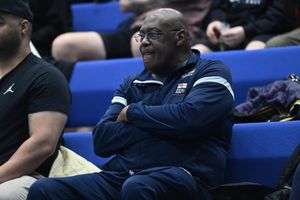
I remember as a child – I’d be nine or 10 – walking into Bilston Police Station and being impressed by the uniforms.
“It wasn’t about wanting to do a public service, I just wanted to be a copper, there was just something within me that wanted to be a police officer.
“I answered an ad in the Star and took myself to Birmingham. At Lloyd House I did the entrance exam. There were 40 or 50 people and they picked two. I was determined to get in, get through the training and get to work.”
As a black face in the thin blue line, Kirk has faced ignorance and moments of undiluted irony.
Isn’t it ironic that an Afro-Caribbean officer should risk serious injury in an attempt to uphold the National Front’s democratic rights? He braved bricks while protecting the far-right group’s meeting at Boulton Road School, in Handsworth, during a demo organised by the Socialist Workers Party.
That irony was not lost on ITN News, with Jon Snow interviewing the officer about his ordeal.
Kirk recalled that harrowing August 15, 1977 encounter in the book 'Reporting for Duty' by former police chiefs Mike Layton and Steve Burrows:
“Imagine it, a black copper protecting the very organisation that hated his very existence. The actual position I took up was between the hard brick wall of the school building and railings that were positioned about 10 feet in front of it. My left was blocked and the only exit was to my right.
“As I looked out on the road, I could hear chants getting louder and louder.
“My recollection was I heard someone shout, ‘**** me, he’s black’ followed by a barrage of bricks. I began jumping around like a target on a fairground stall, trying to dodge them. It was impossible, there were hundreds of them.
“The mob was very angry and I believe it was because of my colour which was confirmed by shouts of ‘traitor’, ‘coconut’, ‘choc ice’ et al.
“Eventually, in what must have been seconds but felt like an age, I went down to the floor. Some ran up to the fence throwing bricks at me as I curled up in the foetal position trying to protect my head. I genuinely thought I was going to die.
“All of a sudden I felt a great weight drop down on top of me – it was another copper and he was now taking the bricks to protect me. He shouted in my ear, ‘when I count to three, get up and run. I will be behind you.
“No longer frozen with fear, I only heard ‘three’, got up and felt the force of him pushing me along the side of the wall and the wrought iron fence towards the rear playground.
His name was Robin Jones and to this day I am convinced he saved my life. He never saw me as a colour, just a fellow police officer who was in dire need of assistance. It was an act of bravery I will never forget.
“As we got the playground the fence was being violently dismantled by the protestors like it was made of paper.
“The fence now gone, I saw a line of police facing a line of SWP demonstrators. One line organised and ready, one not.
“The organised one drew its truncheons and, though heavily outnumbered, charged at the demonstrators who began to flee, tripping over the debris they had created.”
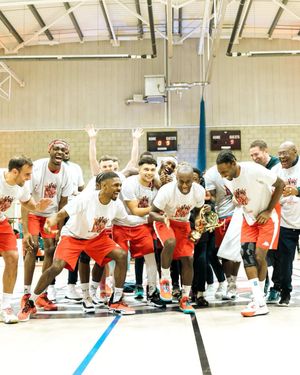
It is one in a long list of heart-stopping moments.
Kirk, still active in the community as chairman of the board at City of Birmingham Rockets Basketball Club, has seen sweeping changes within policing – the most telling instigated by the 1999 published findings of an inquiry into the fatal, racist attack on black teenager Stephen Lawrence.
The 350 page report branded London’s Metropolitan Police “institutionally racist”.
“Hugh changes came after Stephen Lawrence’s death,” Kirk said. “That defined me as a person, that report reaffirmed we had to change.”
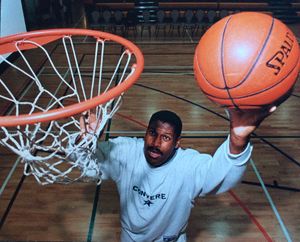
Good work has been done. More good work needs to be done.
“Even today, the National Black Police Association has pulled away from talking to senior management at The Met,” Kirk added. “Nationally, it has pulled away from dialogue with senior police, although the relationship is good in the West Midlands.
“Even today, there has only ever been one black Chief Constable in this country. I believe the police could do more in terms of representation and progression.”
It may not be perfect, but thanks to pioneers such as Kirk Dawes a black policeman’s lot is a much happier one.

